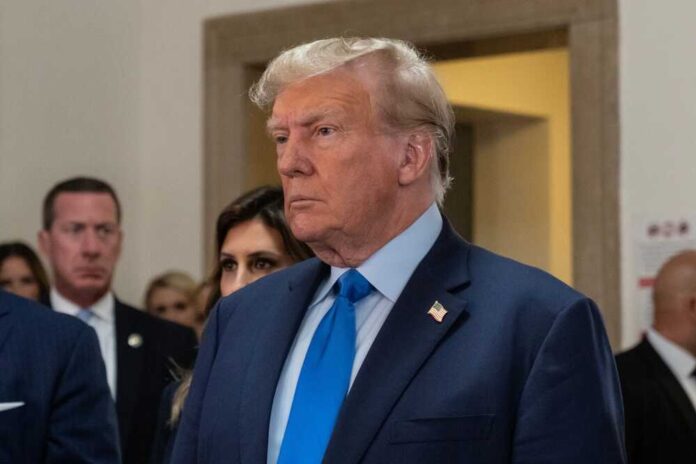The former president and his co-defendants in the Georgia election interference case had asked a Fulton County court to dismiss the lawsuit because it violated their First Amendment rights. The judge rejected their petition.
Several individuals, including Trump, claimed that the indictment in Fulton County went against their First Amendment rights by indicting them for contesting the 2020 presidential election results. Judge Scott McAfee rejected this contention, saying even core political speech addressing matters of public concern is not impenetrable from prosecution if allegedly used to further criminal activity.
The allegations against the defendants in the indictment include submitting papers containing false statements and misrepresentations within the authority of state departments and agencies, as well as making false statements to public authorities with knowledge and intent.
Additionally, McAfee said that he could not locate any authority that the speech and conduct alleged protected political speech. The First Amendment’s Petition Clause does not protect petitioners from asserting their petitions were fake. An aide to Trump, Steve Sadow, issued a statement in which he and his client respectfully disagreed with the decision but acknowledged McAfee’s permission to bring up the matter later.
After an investigation by District Attorney Fani Willis and her staff, a grand jury in Fulton County arrested Trump and eighteen other co-defendants on state counts last year.
Prosecutors charged the defendants with conspiring to nullify the 2020 Georgia election results after Trump’s loss in the state. Most defendants, including Trump, have entered not-guilty pleas and denied wrongdoing; a few others have accepted plea bargains.
Defending counsel contested the state statutes that formed the basis of the accusations by arguing that the claimed infractions were protected political speech. According to McAfee’s ruling, speech that is “alleged to have been made in furtherance of criminal activity” does not qualify for the First Amendment’s protections.
The ex-president faces four separate criminal cases, including this one in Georgia. This month, a Manhattan trial will begin in which Trump is charged with 34 felonies related to the falsification of company documents. Special counsel Jack Smith filed Federal charges against him in Washington, D.C., concerning his actions around the 2020 election.














